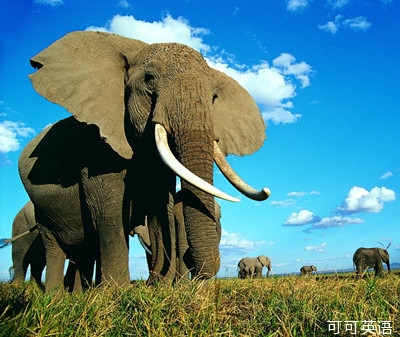When summer hits, I dread jogging outside. But a study finds that elephants can be in true danger in the heat.

For the study, two female elephants in the Audubon Zoo in New Orleans walked around a half-mile track under various conditions. The outdoor temperature during these sessions ranged from a chilly 8 degrees Celsius to a scorching 35 degrees.
原文譯文屬可可原創,未經允許請勿轉載!











